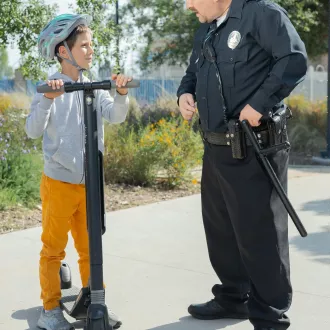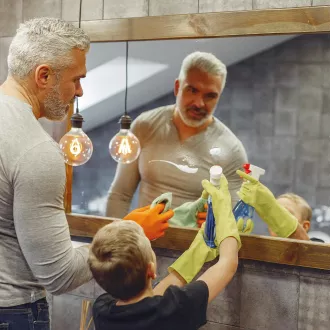Transcription How to help without doing all the work on children's autonomy?
Fostering children's autonomy and independence is a very important task for their growth and development.
However, it is important for parents and caregivers to understand that they should not do all the work for them. Instead, they should find ways to help them without impeding their ability to make decisions and perform tasks on their own.
Here we will look at how it is possible to help children without taking away their responsibility and autonomy.
The importance of not doing all the work
When children perform tasks autonomously, they feel more capable and competent, which boosts their self-esteem and self-efficacy. On the other hand, performing everyday tasks such as dressing, eating or taking care of their personal hygiene, allows them to acquire important skills that will help them in their future practical life.
When parents or caregivers do all the work instead of the children, they are weakening them instead of strengthening them in their development. If children are motivated and committed to doing a task, parents should give them the confidence to do it for themselves and not immediately jump in to do it for them.
How to help without doing the work for them
Slow Start: For many parents, it can be difficult to not intervene in what their children are doing, especially when they are frustrated or struggling to complete a task. But it's important not to jump in right away and give them a chance to work on the task on their own. If they need help, parents can start by giving some suggestions or cues, but then they should allow their children to work on their own.
Communication: Parents should communicate with their children about the importance of autonomy and independence and how there are ways they can help them without doing all the work for them. If children understand why independence is being encouraged and how parents can help them in different ways, they are more likely to be motivated to do tasks on their own.
Guidance: Instead of doing all the work for children, parents can provide guidance and direction in completing everyday tasks. For example, instead of buttoning the buttons on a shirt for their child, a parent can say, "Let's see, first button. Try it yourself and I'll be here if you need my help." In this way, you are giving directions and direction but allowing the child to perform the task on his or her own.
Responsibility: To encourage a child's independence, it is important that they are given age-appropriate responsibilities. For example, a young child may have the responsibility of setting the table for dinner, while an older person may have the task of helping with dinner preparation. By giving children responsibilities, they are learning to make decisions and accomplish important tasks on their own.
Praise: When children perform a task on their own, it is important to recognize their effort and give them praise for their accomplishment. This will build their self-esteem and motivate them to continue working on their autonomy and independence.
help without doing everything




